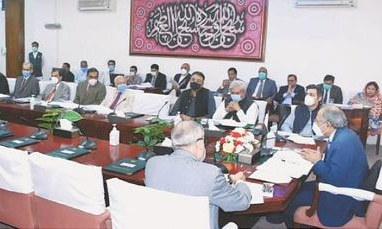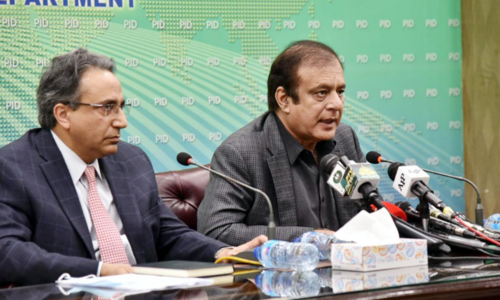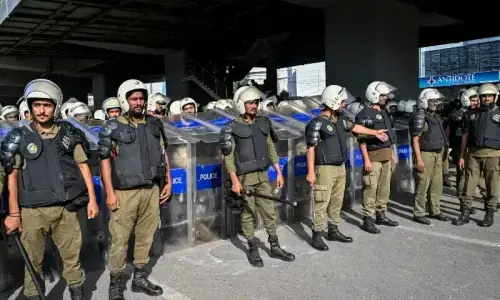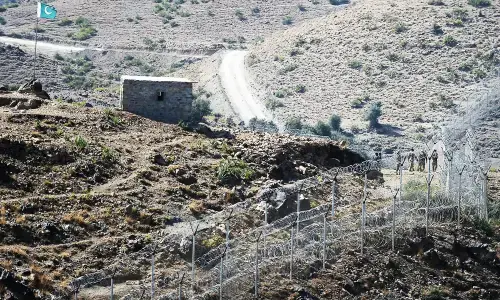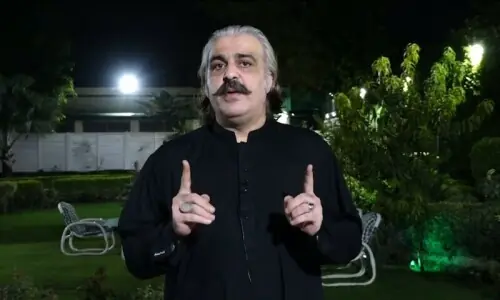KARACHI: At the Oil and Gas Regulatory Authority (Ogra) public hearing held on Monday, the Sui Southern Gas Company (SSGC) petitioned for an increase of Rs153.16 per mmbtu in the prescribed prices of gas for 2021-22 to meet the revenue shortfall and RLNG services.
Meanwhile, the CNG sector and industry stakeholders called this proposed increase unjustified and urged the gas company to present audited records and work on drastic reduction in unaccounted for gas (UFG) losses.
In its prayer, the SSGC requested Ogra to allow net increase of Rs3.395 billion, or Rs10.65 per mmbtu, in the revenue requirement of the indigenous gas business (including LPG air mix consumer).
Aptma says prescribed prices not sustainable
Meanwhile, in its recommendations, All Pakistan Textile Mills Association (Aptma-South) said that prescribed prices were not sustainable. It requested Ogra to disallow many of the adjustments and urged for out-of-the-box solutions.
The utility chief acknowledges the issue of unannounced gas loadshedding that has made domestic consumers’ life miserable
“Ogra may recommend utilisation of GIDC [Gas Infrastructure Development Cess] to cause reduction in gas prices. UFG, induction of LNG and wellhead prices are not sustainable and need major downward revision. Reduction of indigenous gas is not sustainable. Ogra/SSGC needs to alert the government. As per Ogra Ordinance 2002, it is required to minimise economic distortions, send appropriate price signals and protection of consumers. All prescribed prices need to be lowered. Export-oriented, zero-rated industries, including its associated power generation plants, need to be fixed at Rs450 per mmbtu,” the body recommended.
Businessman and industry leader Zubair Motiwala said there was a need for an even playing field and fair practices. “Break this monopoly which has created all these problems. I believe I can sit down with you and prove that there is room for Rs59 reduction in the price. Kindly understand our future, the future of our generations and the big population depends on the industrialisation in this country.”
He went to say that “anarchy was being invited” due to this unfair playing field and monopoly.
The industry is not ready to buy RLNG under compulsion, he said, adding that tactics including denial of connection to new units were being used.
‘CNG sector is finished in Sindh’
Abdul Sami Khan, chairman of the CNG Dealers Association, said the CNG sector was finished in Sindh. “Things are so bad that CNG dealers are struggling. It’s been 20 days and the sector is collapsing. The reason this sector was propped up to lower fuel imports, we invested billions and now no one is there to hear our grievances. A former government adviser had suggested the sector move to RLNG. He said after moving to RLNG we will not have any problem. The CNG industry is suffering because we don’t have gas. We only want the gas we produce, as laid out in the Constitution,” he said.
“The SSGC has a great responsibility but unfortunately we are being overburdened. Why is there gas theft? This needs to be looked into so that these thefts are over and we get access to that gas,” he said.
Talking to journalists after the hearing, SSGC Managing Director Imran Maniar acknowledged the issue of UFG and unannounced gas loadshedding, which has made the life of domestic consumers difficult combined with electricity outages.
“The feedback given by Mr Motiwala we have to accept this reality that indigenous gas at this point is 67 per cent, down from 100pc. Some six-seven years ago we did not have the need to import a single LNG molecule. We set the price of our gas ourselves. Even our domestic consumer gets gas at Rs121 per mmbtu. However, the reality is that we have started to import gas. We have two terminals importing gas, we can’t decide the rate for this gas as its set by international market. Imported gas will be expensive as we have to make payments in dollars and unfortunately the consumers will be the ones paying,” he said.
“If we start giving subsidies to all industries, we will face a similar situation like the power sector. The circular debt in the power sector is Rs2.3 trillion. Is this the direction that we are heading where five to six years from now we are facing similar challenges?” Mr Maniar asked.
Published in Dawn, June 29th, 2021



